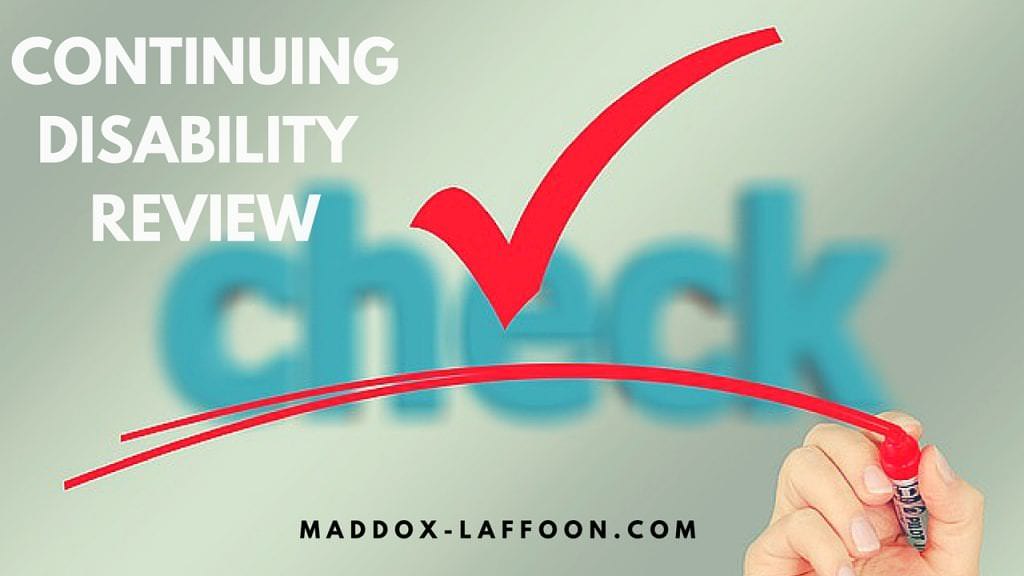Continuing Disability Reviews (CDRs)

You have jumped through all SSA’s hoops, filled out all the forms, and maybe even met with an Administrative Law Judge, and your disability benefits have been approved. Finally you get to sit back and stop worrying about SSA paperwork … or do you?
To make sure that disability benefits are not being paid to people who have gotten better and can return to work, SSA conducts continuing disability reviews (CDRs) about every three years. If you are over 55 or have a condition that is unlikely to get better, you can expect CDRs less frequently, about every seven years. A CDR can also be triggered sooner if medical improvement is expected, or you begin earning too much money from working.
CDRs involve a review of new medical evidence since the time you were found disabled. For this reason it is very important that you continue to receive medical and/or mental health treatment for your disabling conditions. If you are not receiving treatment, SSA will assume this is because you no longer require it.
A CDR will result in the cessation of your disability benefits if:
• There is medical improvement related to your disabling impairments AND
• The improvement is related to your ability to work AND
• You are now able to engage in Substantial Gainful Activity (SGA), taking into account your original disabling condition and any new impairments that you developed
SSA does not need to show that your impairment has medically improved if:
• You are working over the SGA level
• You have had vocational training for direct entry into work you can do
• A new method for evaluating the severity of your condition shows you are not disabled, OR
• There was an error in the original determination of disability
In these cases (Group I Exceptions), SSA does not need to establish medical improvement. They must, however, make a finding that you are capable of performing SGA before ceasing your disability benefits – unless you:
• Committed fraud
• Failed to cooperate with the disability review
• Cannot be found OR
• Failed to follow prescribed treatment
In these cases (Group II Exceptions), SSA is not required to make a finding that you are capable of performing SGA before stopping your benefits. For this reason, it is very important that you promptly respond to all notices from SSA, jump through their hoops, and complete their forms.
Read more: Beware of Scammers Trying to Help with Disability Applications
Most people do not lose benefits after a CDR, as there is a presumption of disability, rebutted only with evidence of a change. About 95% of CDRs result in a continuation of disability benefits. If you do receive a notice that your benefits will be ceased, you can appeal the decision. If you appeal within 10 days, you can ask that your benefits be continued during the appeal. Because of the presumption of disability, most people do not need a legal representative to navigate a CDR. If you do hire a representative, you should plan on paying him or her 25% of your monthly benefit as a contingent fee.

